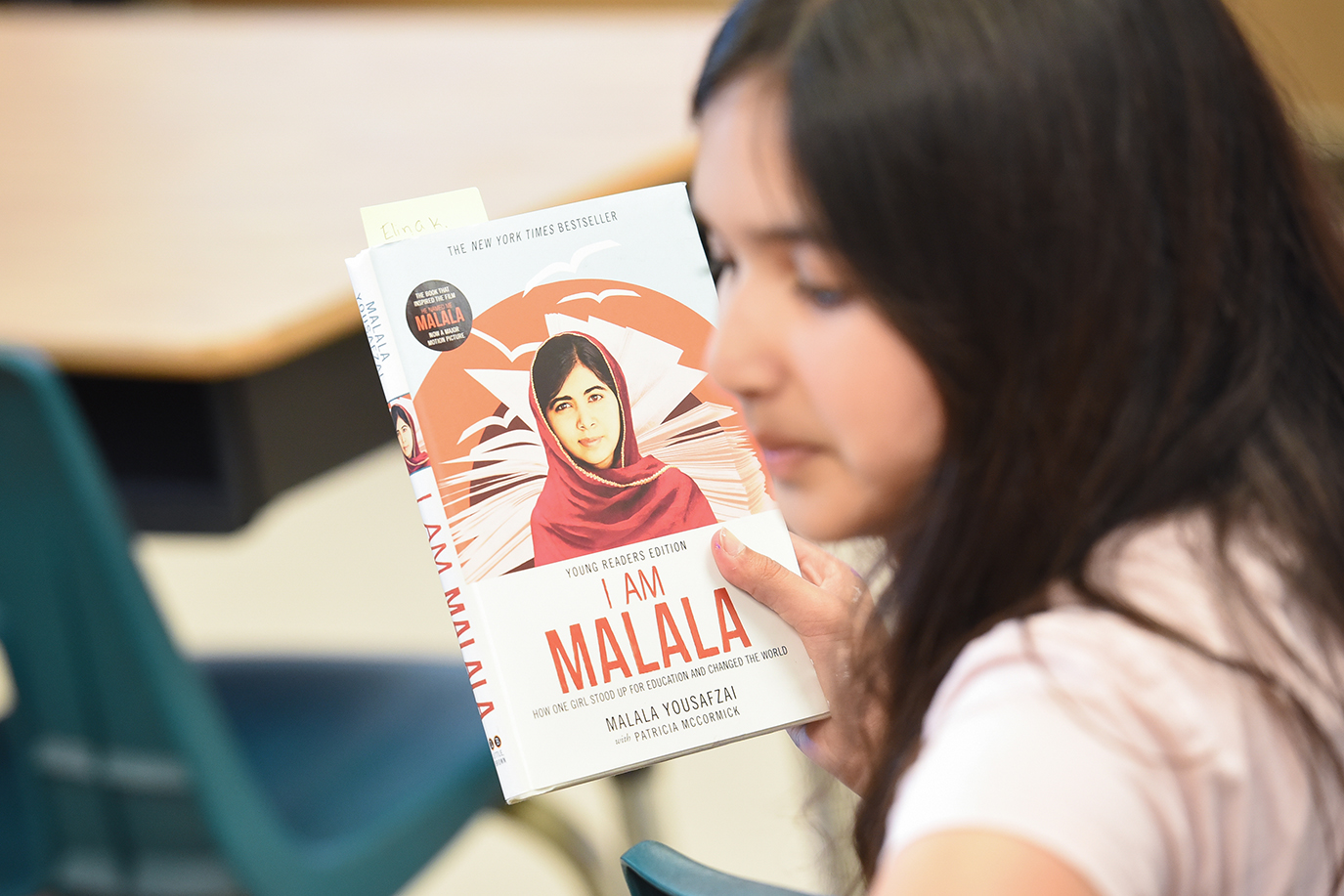Middle school students seized upon a great opportunity to learn about historical analysis through the lens of current events at the Middle School Summer Institute’s class about Pakistani activist Malala Yousafzai. The course was taught by Harker history teacher Sara Pawloski, who first heard Yousafzai’s story when she took a class on migrant stories two years ago. “The one that really made an impact on me was Malala’s,” she said. Pawloski believed Yousafzai’s story of fighting for girls’ education in Pakistan was particularly important “because a lot of people, especially … in the Bay Area, don’t think it’s hard for people to get an education anywhere in the world, and it actually really is.”
That lesson was particularly important to student Ellie Schmidt, who will start grade 7 in the fall. “I learned that though we, in the U.S.A., take education for granted, in and around Pakistan many girls get very little education if any,” she said. “I didn’t realize that this happened.”
Students began the class by learning about concepts such as identifying primary and secondary sources. “That’s a skill that’s really important, especially with students this age,” Pawloski noted. The students also learned about bias, which Pawloski said has a negative connotation it does not always deserve, as it can often be important in understanding someone’s perspective.
The class, which is largely activity-based to maintain student engagement, gave students insight about the beginnings of history with regard to the dawn of civilization. “I do a hands-on activity outside where I put water somewhere and they have to hunt for food, and they have to try to build a shelter, so they can kind of get an idea of how history actually began,” said Pawloski.
Yousafzai’s book, “I Am Malala,” is another important piece of the class, as students first discussed what they believe the book will be about, followed by readings and class discussions.
Pawloski also had students investigate the work other activists around the world and make short comic strips about them. “My favorite part about taking the class was learning about all the women activists and what they did and still do to help obtain more women’s rights,” said Schmidt.
Seeing the students learn about the experiences of others around the world was especially gratifying for Pawloski. “I think what I’ve really seen them pick up on is that what they experience is not what everyone else experiences, and I think that’s a great lesson, especially for middle schoolers,” she said. “But I definitely have noticed that they’re starting to realize, we’re here, were lucky, and the outside world doesn’t have everything that we have.”
